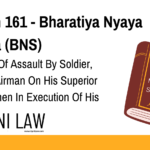What Is The Supreme Court’s Ruling?
A non-bailable warrant (NBW) is an arrest order issued by a court for serious offenses. This type of warrant ensures that the accused is taken into custody without the option of bail. This article delves into the views on what is the Supreme Court’s ruling, and more rights. A judge typically issues a non-bailable warrant when:
- The offense is severe: The nature of the crime indicates a significant threat to society or individuals.
- The accused may try to escape: There’s a reasonable belief that the individual might flee to avoid prosecution.
- The court believes they won’t cooperate: The individual has shown a pattern of non-compliance with legal processes.
Once issued, authorities are required to arrest the accused and hold them in custody until their court hearing or further legal orders. This strict measure is designed to prevent absconding and ensure compliance with the law.
What Is The Difference Between Bailable And Non-Bailable Warrants?
- Bailable Warrant: The accused can secure bail and avoid immediate arrest.
- Non-Bailable Warrant: The accused must appear in court before seeking bail; immediate bail is not granted.
- Section 70, CrPC: Defines the process for issuing warrants.
- Section 87, CrPC: Specifies the legal grounds for issuing a non-bailable warrant (NBW).
What Is the Supreme Court’s Ruling On Non-Bailable Warrants In The Sharif Ahmed Case?
- The Supreme Court recently ruled that non-bailable warrants should only be issued if the accused faces serious charges and is likely to evade justice or tamper with evidence. In the case of Sharif Ahmed & Anr. v. State of Uttar Pradesh & Ors., a trial court issued an NBW after the appellants failed to appear, despite having a bailable warrant.
- The police had filed a chargesheet under the Indian Penal Code (IPC).
- The appellants moved to quash the chargesheet and proceedings in the Allahabad High Court, but their plea was dismissed.
- They then appealed to the Supreme Court, which ruled in their favor, quashing the criminal proceedings.
The Supreme Court emphasized that courts should issue non-bailable warrants only in exceptional cases and noted that there are no fixed guidelines for issuing them. It reaffirmed that individual liberty cannot be restricted unless necessary for public interest.
Steps To Take If An NRI Receives A Non-Bailable Warrant (NBW)?
An NBW means that upon arriving in India, the accused faces immediate arrest. Bail will not be granted until they appear before the court. Ignoring the warrant can lead to serious legal consequences, including being declared a proclaimed offender or facing extradition if residing abroad.
Steps to Take:
- Engage Legal Counsel: Hire an experienced lawyer to navigate the legal process and represent you in court.
- File a Petition: Submit a petition challenging the issuance of the NBW, citing procedural errors or insufficient grounds.
- Request a Hearing: Attend scheduled court hearings and present your case, emphasizing reasons for any previous non-compliance.
- Seek Quashing: If applicable, file for quashing the NBW in a higher court, arguing it was issued improperly.
- Comply with Court Orders: Ensure compliance with any court directives to avoid further complications. What Are the Consequences If One Fails to Appear in Court After an NBW Is Issued?
If an individual fails to appear in court after an NBW is issued:
- They may be arrested immediately upon execution of the NBW and held until court proceedings are resolved.
- The court may initiate contempt proceedings against them for disregarding its orders, potentially resulting in additional penalties.
- In some cases, property attachment may occur to ensure compliance with legal proceedings.
- Non-appearance can lead to more severe charges or implications in the original case, complicating matters further. What Are the Rights of Individuals Against Whom a Non-Bailable Warrant (NBW) Has Been Issued?
Right Of Individuals Facing An NBW
- Right to Legal Representation: They can seek legal counsel to challenge the warrant and represent them in court.
- Right to be Informed: They should be informed of the charges against them and reasons for issuing the NBW.
- Right to Challenge: They can file a petition to quash the NBW based on lack of evidence or procedural errors.
- Right to Fair Treatment: Courts must consider individual liberty and should not issue NBWs routinely; they must assess flight risk or evidence tampering concerns.
- Right to Timely Hearing: If arrested, they must be presented before a magistrate within 24 hours, as mandated by law.
Conclusion
Navigating the complexities of a non-bailable warrant can be daunting, especially for those unfamiliar with legal processes. Understanding what an NBW entails, recognizing your rights, and knowing how to respond effectively are crucial steps in managing this situation. Whether you’re facing an NBW yourself or supporting someone who is, seeking experienced legal counsel is essential for protecting your rights and ensuring fair treatment under the law. Remember, being informed and proactive can make all the difference in resolving these serious legal matters successfully.











